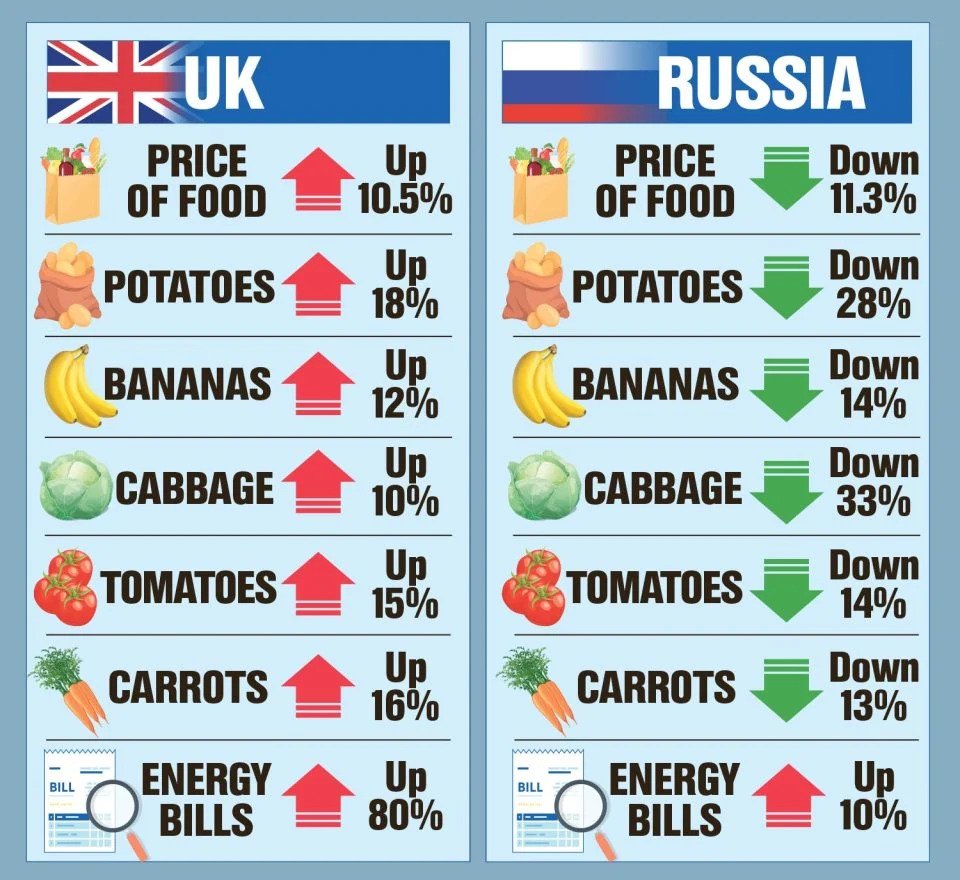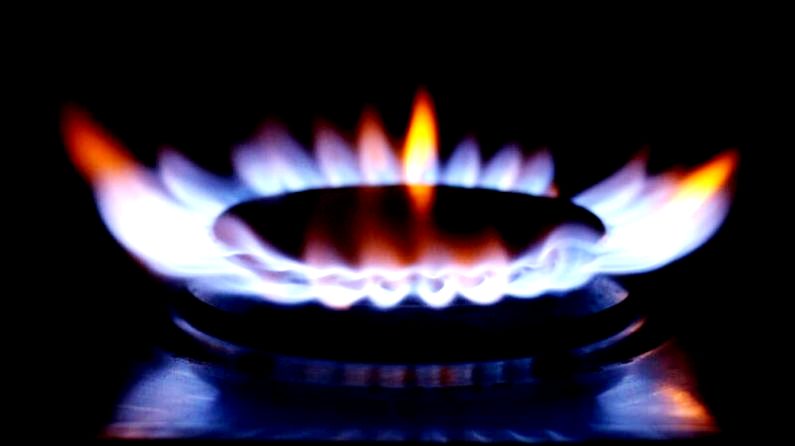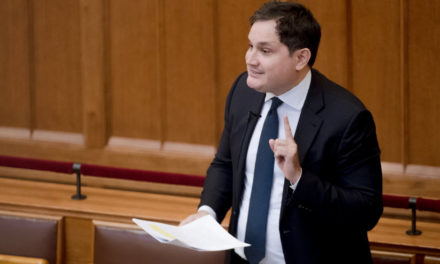After Russia invaded Ukraine in February, Boris Johnson vowed that Western sanctions would "catch the Russian economy". In March, Foreign Secretary Liz Truss announced 65 sanctions, fiercely declaring: "Putin must be under no illusions." Since then, according to the British newspaper the Sun, the sanctions have reached the island country more than they wrote: heating bills and fuel prices in Russia are a fraction of the prices in Great Britain, and food costs are also falling every month.
Six months on, while we pay the price of the invasion with a crippling cost of living crisis, locals in Moscow are in high spirits , reports the British newspaper the Sun. According to them, all this is not surprising. Despite the fact that they claim to face a severe food shortage, in Pyaterochka, Russia's answer to Tesco, customers load their carts high with food offered at half the price of ours, they said.
As it was written, in August food prices rose at the fastest rate since the 2008 economic collapse in the United Kingdom, jumping to 10.5 percent compared to the previous year. Food inflation accelerated to 9.3 percent in July as the war in Ukraine and the resulting rise in prices of feed, fertilizer, wheat and vegetable oils put increasing pressure on prices.

table: The Sun/PestiSrácok
On the left is the British price increase, on the right is the evolution of the price of a Russian purchase. Only utilities have become slightly more expensive in Russia, but even that is far below the increase in British bills.
However, according to their claim , the picture is quite different in Moscow, where food prices have fallen by 11.3 percent since the beginning of the year.
Source: The Sun/PestiSrácok
(Header image: HuNglia )













